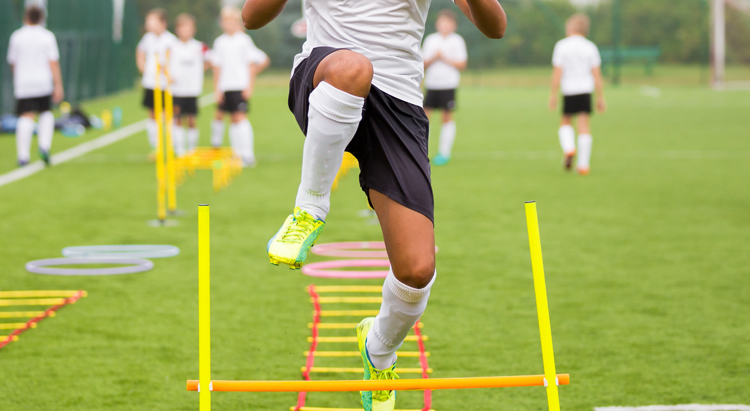-
24 April 2018
-
0 comments

Pro tips to train for success at school like you train for sport
Part 3 of 4
4. Train Regularly
Like a gym/training regime for your body, your mind will improve best if you commit to an effective study plan. Put it on paper, keep it on the wall, and stick to it closely. Once the routine becomes a habit, it won’t feel like such an effort.
Even when you are up-to-date with set homework and assignments, you should use study time to keep reviewing your notes, to maintain your knowledge. Keep practicing previously learned techniques so your skills don’t slip away. Do a small amount each night and use the weekend to catch up.
Make sure you study from multiple sources, not just what your teacher gives you. Use your textbook, the internet and friends to find other explanations, examples and practice questions.
You’ll want to avoid over-exertion and unnecessary stress leading up to a game. So, take steps to avoid “cramming”, late nights and stress before exams and assignment due dates. This means planning, preparation and working ahead of schedule.
For assignments, write a fake due date in your diary a week before the real one and hold yourself to it like the real thing! It’s an amazing feeling to know that you’ve finished early and then have an “extra” week to make any final tweaks. Like walking into a stadium knowing you’re the best player, you’ll be more relaxed and can just let your body do its thing. You can do the same for exam revision.

5. Manage Performance Pressure
Your body works best when it’s in a ‘flow state’. (If your coach has never mentioned it, you need to Google ‘flow state sport’ now.) Your body works best when you’ve trained to the best of your ability, so that on game day you can just let it do its thing, without thinking. To do this you need the right kind and amount of pressure. You can’t be stressed out, nor can you be bored. You have to challenge yourself to the optimal level.
Year 12 should be a bit stressful. Not so stressful that it adversely affects your performance. But the right kind of stress helps motivate you to train and perform. Letting things fall behind will cause bad stress. So set realistic goals and work ahead of schedule as much as possible.
Here’s a big secret: you don’t have to wait for your teacher to tell you to do something! Just work ahead in your textbooks. Then you can relax more in class; it’s more like revision and you can concentrate on the bits you didn’t understand fully by yourself.
And remember sometimes you need to NOT be studying. Overworked athletes burn out. So, set aside specific time to do things that are not study related, like sport and socialising! Both are fantastic for the brain. Without physical activity and time spent with others, you’re making study harder.
Even when you know you’ve trained your hardest, and you’re as prepared as you’ll ever be, there’re still game day nerves. Before a big game there’s a physiological build up that your body goes through. So athletes learn to control their body’s automatic reactions to anxiety. We stretch, we breath, we visualise our performance. Before exams, it’s the same. Expect the nervousness, the tensions, the fast pulse. Feel it, accept it and let it go. Breathe deeply. Picture yourself performing calmly, tackling each question as it comes, walking out of the exam a champion.
Continue> Read Conclusion and Print Checklist to keep yourself on track…
Share Social




















